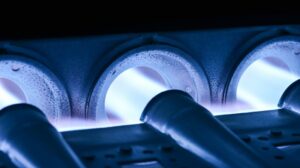 Gas-powered furnaces are not inherently dangerous appliances. This is something we want to clarify right away! We aren’t looking to panic you just because you choose to heat your home with a gas-powered furnace. But like any other powerful appliance in your home that uses gas, hazards can happen if it’s not well cared for.
Gas-powered furnaces are not inherently dangerous appliances. This is something we want to clarify right away! We aren’t looking to panic you just because you choose to heat your home with a gas-powered furnace. But like any other powerful appliance in your home that uses gas, hazards can happen if it’s not well cared for.
When a gas-powered system isn’t well cared for, you risk one component failure in particular you never want to have—a cracked heat exchanger. This is most likely to happen with an aging heater (10-15 years old or older). For this reason we recommend looking into a replacement once your furnace has reached about a decade. Routine maintenance will help you avoid this problem, but it’s still a problem you should be aware of.

 Wouldn’t it be great if our air conditioners could send us a little warning when something is amiss? Like, we could get a text message to our smartphones telling us when a motor bearing needs lubrication or replacing, or when we have a refrigerant leak?
Wouldn’t it be great if our air conditioners could send us a little warning when something is amiss? Like, we could get a text message to our smartphones telling us when a motor bearing needs lubrication or replacing, or when we have a refrigerant leak?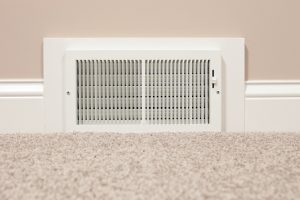 Imagine it’s the coldest day of winter, and you want into your home after a long day out to discover it’s practically no warmer inside than it was outside. Fortunately, you won’t have to deal with chilly temperatures for very much longer at the time of this blog post. But that certainly doesn’t mean you should neglect any signs you need furnace repair.
Imagine it’s the coldest day of winter, and you want into your home after a long day out to discover it’s practically no warmer inside than it was outside. Fortunately, you won’t have to deal with chilly temperatures for very much longer at the time of this blog post. But that certainly doesn’t mean you should neglect any signs you need furnace repair.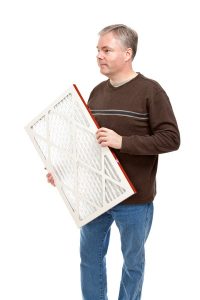 You may have heard us recommend replacing your HVAC air filter every 1-3 months. This isn’t just something we’re throwing out as a random suggestion—we are offering this advice as a way for you to get the most effective and efficient use out of your heating system as possible. And considering how much we’ve all used our heaters so far this winter, chances are you’d like to avoid problems and spending unnecessary money.
You may have heard us recommend replacing your HVAC air filter every 1-3 months. This isn’t just something we’re throwing out as a random suggestion—we are offering this advice as a way for you to get the most effective and efficient use out of your heating system as possible. And considering how much we’ve all used our heaters so far this winter, chances are you’d like to avoid problems and spending unnecessary money.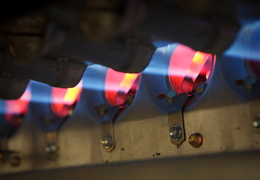 If you’re looking for a new furnace this time of year, then you understandably have a lot on your plate. And with options to consider like what fuel type to use, the AFUE vs. HSPF ratings, whether to go with electrical or gas, etc. you may be tempted to go with the first furnace that fits your budget just to get the process over with.
If you’re looking for a new furnace this time of year, then you understandably have a lot on your plate. And with options to consider like what fuel type to use, the AFUE vs. HSPF ratings, whether to go with electrical or gas, etc. you may be tempted to go with the first furnace that fits your budget just to get the process over with.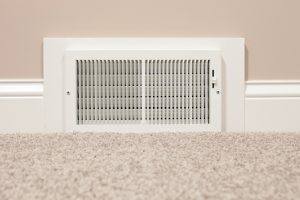 What if we told you there was a way to increase your home comfort while also lowering your heating and cooling bills? There are actually a variety of simply steps you can take to boost your HVAC system’s efficiency, and with winter coming up we’re sure you’d love to know how to save on heating costs.
What if we told you there was a way to increase your home comfort while also lowering your heating and cooling bills? There are actually a variety of simply steps you can take to boost your HVAC system’s efficiency, and with winter coming up we’re sure you’d love to know how to save on heating costs.